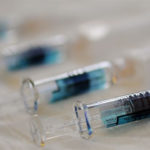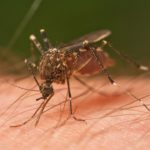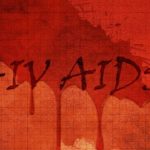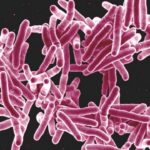
What is H1N1 Influenza Virus Vaccine? H1N1 influenza virus vaccine is used to prevent infection caused by the pandemic 2009 H1N1 influenza virus. H1N1 influenza is sometimes called “swine flu” because it originated in pigs. You cannot become infected with H1N1 influenza from eating pork products. The injectable H1N1 influenza virus vaccine is a “killed virus” vaccine. H1N1 influenza virus
Read More …

Typhoid fever is common in less-industrialized countries, mainly due to problems with unsafe drinking water, inadequate sewage disposal and flooding. According to the Centers for Disease Control and Prevention, almost 21.5 million people in developing countries contract typhoid each year. Transmission of Typhoid Fever Typhoid fever transmission takes place when a person eats food or drinks beverages that have been
Read More …

India is the world’s antibiotic popping capital, recording the highest number of such pills consumed annually – 13 billion pills as against 10 billion in China and 7 billion in the US. As a result of such reckless use, deadly strains of life-taking bacteria that are resistant to even the latest generation of antibiotics have been found to be rampant
Read More …

Delhi is Suffering! Chikungunya and dengue cases in New Delhi had tapered off by the first week of December last year, ending the vector-borne disease season in the city that witnessed its worst chikungunya outbreak in the last 10 years. Blame it on the Climate Change but because of untimely rains last week, the Capital city is dealing with the
Read More …

HIV infection advances to the forward stage if not treated, overwhelming your immune system and getting worse over time. By using HIV medicines (called Antiretroviral Therapy or ART) consistently, you can prevent HIV from progressing to AIDS. ART helps control the virus so that you can live a longer, healthier life and reduce the risk of transmitting HIV to others.
Read More …

Tuberculosis management refers to the medical treatment of the infectious disease tuberculosis (TB). More than twenty drugs have been developed for the treatment of TB. The drugs are used in differing combinations in different circumstances. For example, some TB drugs are only used for the treatment of new patients who are very unlikely to have resistance to any of the
Read More …

What is Drug Resistance? Drug resistance is the reduction in effectiveness of a drug such as an antimicrobial, anthelmintic or an antineoplastic in curing a disease or condition. The term is used in the context of resistance that pathogens or cancers have “acquired”, that is, resistance has evolved. Tolerance is a decrease in response to a drug that is used
Read More …

Rain and humidity aggravates infections specially more in those with low immunity. Following are some of the most common infections and diseases to look out for. Viral Fever Symptoms: Fever – mild to moderate in degree, with cough and sore throat associated with running nose and congestion. Burning sensation in eyes with gritty feeling, body aches. May be associated with
Read More …
Pediatric Viral Fever – Prevention – Wash your hands regularly with soap (be hygienic), Avoid sharing personal items, Cover mouth and nose when sneezing and coughing.
Pediatric Viral Fever – Treatment Using Home Remedies, Yoga, And Diet – Foods to be taken: Fruit juices , Glucose water, Milk ,
 What is H1N1 Influenza Virus Vaccine? H1N1 influenza virus vaccine is used to prevent infection caused by the pandemic 2009 H1N1 influenza virus. H1N1 influenza is sometimes called “swine flu” because it originated in pigs. You cannot become infected with H1N1 influenza from eating pork products. The injectable H1N1 influenza virus vaccine is a “killed virus” vaccine. H1N1 influenza virus Read More …
What is H1N1 Influenza Virus Vaccine? H1N1 influenza virus vaccine is used to prevent infection caused by the pandemic 2009 H1N1 influenza virus. H1N1 influenza is sometimes called “swine flu” because it originated in pigs. You cannot become infected with H1N1 influenza from eating pork products. The injectable H1N1 influenza virus vaccine is a “killed virus” vaccine. H1N1 influenza virus Read More …
 What is H1N1 Influenza Virus Vaccine? H1N1 influenza virus vaccine is used to prevent infection caused by the pandemic 2009 H1N1 influenza virus. H1N1 influenza is sometimes called “swine flu” because it originated in pigs. You cannot become infected with H1N1 influenza from eating pork products. The injectable H1N1 influenza virus vaccine is a “killed virus” vaccine. H1N1 influenza virus Read More …
What is H1N1 Influenza Virus Vaccine? H1N1 influenza virus vaccine is used to prevent infection caused by the pandemic 2009 H1N1 influenza virus. H1N1 influenza is sometimes called “swine flu” because it originated in pigs. You cannot become infected with H1N1 influenza from eating pork products. The injectable H1N1 influenza virus vaccine is a “killed virus” vaccine. H1N1 influenza virus Read More …
 Typhoid fever is common in less-industrialized countries, mainly due to problems with unsafe drinking water, inadequate sewage disposal and flooding. According to the Centers for Disease Control and Prevention, almost 21.5 million people in developing countries contract typhoid each year. Transmission of Typhoid Fever Typhoid fever transmission takes place when a person eats food or drinks beverages that have been
Typhoid fever is common in less-industrialized countries, mainly due to problems with unsafe drinking water, inadequate sewage disposal and flooding. According to the Centers for Disease Control and Prevention, almost 21.5 million people in developing countries contract typhoid each year. Transmission of Typhoid Fever Typhoid fever transmission takes place when a person eats food or drinks beverages that have been  India is the world’s antibiotic popping capital, recording the highest number of such pills consumed annually – 13 billion pills as against 10 billion in China and 7 billion in the US. As a result of such reckless use, deadly strains of life-taking bacteria that are resistant to even the latest generation of antibiotics have been found to be rampant
India is the world’s antibiotic popping capital, recording the highest number of such pills consumed annually – 13 billion pills as against 10 billion in China and 7 billion in the US. As a result of such reckless use, deadly strains of life-taking bacteria that are resistant to even the latest generation of antibiotics have been found to be rampant  Delhi is Suffering! Chikungunya and dengue cases in New Delhi had tapered off by the first week of December last year, ending the vector-borne disease season in the city that witnessed its worst chikungunya outbreak in the last 10 years. Blame it on the Climate Change but because of untimely rains last week, the Capital city is dealing with the
Delhi is Suffering! Chikungunya and dengue cases in New Delhi had tapered off by the first week of December last year, ending the vector-borne disease season in the city that witnessed its worst chikungunya outbreak in the last 10 years. Blame it on the Climate Change but because of untimely rains last week, the Capital city is dealing with the  HIV infection advances to the forward stage if not treated, overwhelming your immune system and getting worse over time. By using HIV medicines (called Antiretroviral Therapy or ART) consistently, you can prevent HIV from progressing to AIDS. ART helps control the virus so that you can live a longer, healthier life and reduce the risk of transmitting HIV to others.
HIV infection advances to the forward stage if not treated, overwhelming your immune system and getting worse over time. By using HIV medicines (called Antiretroviral Therapy or ART) consistently, you can prevent HIV from progressing to AIDS. ART helps control the virus so that you can live a longer, healthier life and reduce the risk of transmitting HIV to others.  Tuberculosis management refers to the medical treatment of the infectious disease tuberculosis (TB). More than twenty drugs have been developed for the treatment of TB. The drugs are used in differing combinations in different circumstances. For example, some TB drugs are only used for the treatment of new patients who are very unlikely to have resistance to any of the
Tuberculosis management refers to the medical treatment of the infectious disease tuberculosis (TB). More than twenty drugs have been developed for the treatment of TB. The drugs are used in differing combinations in different circumstances. For example, some TB drugs are only used for the treatment of new patients who are very unlikely to have resistance to any of the  What is Drug Resistance? Drug resistance is the reduction in effectiveness of a drug such as an antimicrobial, anthelmintic or an antineoplastic in curing a disease or condition. The term is used in the context of resistance that pathogens or cancers have “acquired”, that is, resistance has evolved. Tolerance is a decrease in response to a drug that is used
What is Drug Resistance? Drug resistance is the reduction in effectiveness of a drug such as an antimicrobial, anthelmintic or an antineoplastic in curing a disease or condition. The term is used in the context of resistance that pathogens or cancers have “acquired”, that is, resistance has evolved. Tolerance is a decrease in response to a drug that is used  Rain and humidity aggravates infections specially more in those with low immunity. Following are some of the most common infections and diseases to look out for. Viral Fever Symptoms: Fever – mild to moderate in degree, with cough and sore throat associated with running nose and congestion. Burning sensation in eyes with gritty feeling, body aches. May be associated with
Rain and humidity aggravates infections specially more in those with low immunity. Following are some of the most common infections and diseases to look out for. Viral Fever Symptoms: Fever – mild to moderate in degree, with cough and sore throat associated with running nose and congestion. Burning sensation in eyes with gritty feeling, body aches. May be associated with